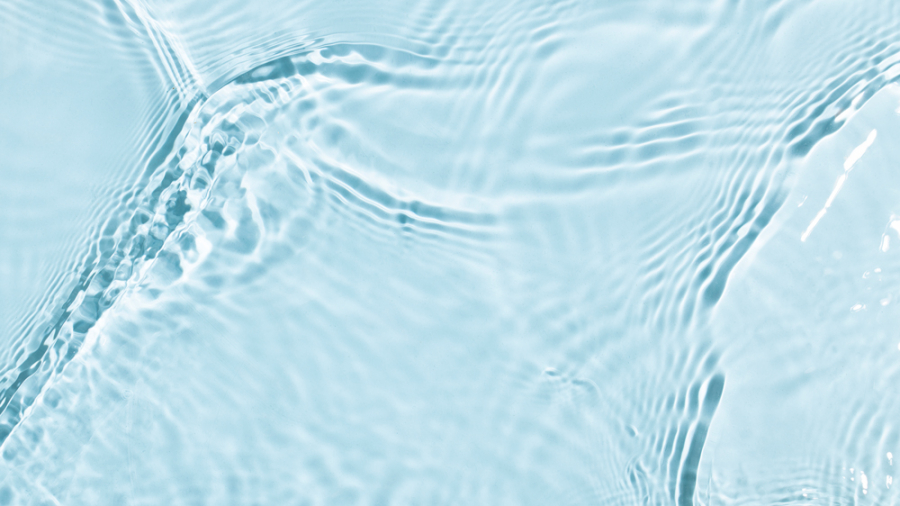Wherever water flows, there is life. From the simple microbe to the complex human being, water plays a critical role in survival. The biological roles of water encompass all living organisms in their environment.
All life forms on earth – bacteria, plants, animals, and humans – depend on water for health and survival. Bacteria needs water to dissolve food and plants need water to create energy to grow. Meanwhile, animals need water for metabolism, to regulate their temperature, support their weight, hide from predators, and move from one location to another.
Why is water necessary for humans? We rely on water for hydration, digestion, detoxification, cooking, cleaning, transportation, and recreation, among others. Without water, there would be no food, no energy, and no life.
More than just a simple mixture of hydrogen and oxygen molecules, water is essential for sustaining life.
The Water and Our Body
The average body of an adult human being comprises over 70% water. Most of the water in the human body is contained inside our cells, which makes up two-thirds from the water we drink.
When a person drinks water, the body absorbs it immediately, and stores it in specific areas. The more muscular a body is, the more water it contains. On the contrary, the more fats in the body, the less water the body contains – as body fat carries little water.
Additionally, all our vital organs contain different amounts of water: the brain, lungs, heart, liver, and kidneys contain a large quantity of water – between 65% to 85% depending on the organ, while bones contain less water, about 30%.
How Much Water is Enough?
According to WebMD, people don’t necessarily need to drink eight glasses of water per day, but at least half an ounce to an ounce for each pound they weigh (estimate of 28g per kg). However, when estimating how much water you need to drink every day, the type of exercise and the environment in which you live also play a role. If you live in a very hot climate and exercise outdoors frequently, you would need more than the recommended amount. However, if you live in a cooler climate and are mostly sedentary, your water intake would fall on the lower end of the range.
Symptoms of Dehydration
Our body’s signal of thirst is not just confined to experiencing a dry mouth, dry skin, decreased urine, and constipation. Here are other symptoms that may signify that you’re dehydrated.
- Thirst Pains
Dehydration can cause chronic joint pain, headaches, and gastric ulcers. Our body needs pure water to carry acidic waste out of cells. When water is insufficient, our nerves will interpret the residual acidic waste as pain.
- Fatigue
A 1.5% water loss can lead to reduced cognitive function, headaches, and fatigue while a 5% water loss can cause 25-30% energy loss.
- Allergies & Asthma
Chronic dehydration triggers a histamine release in asthma sufferers, which leads to inflammation and bronchoconstriction.
- Digestive Problems
Chlorine in tap water can destroy friendly microflora in the gut, resulting in bloating and slower digestion.
Prevention of Dehydration
Dehydration is the absence of a sufficient amount of water in your body. The best way to beat dehydration is to drink before you get thirsty. Keep track of how much fluid you drink. Drink water throughout the day, including meal time. Avoid excessive intake of soda, alcohol and caffeinated drinks to take care of your health.
The most important function of water is to hydrate the body, not to provide nutrients, which is the role of food.
While there are many different types of water in the market, the best drink we can give our body is contaminant-free water because water that is filled with harmful contaminants puts a burden on our body to remove these impurities.
Pure water has no chemicals, minerals, compounds, or elements. Pure water hydrates and refreshes the body. Pure water is H2O and nothing else.
According to a report by the Associated Press in 2008, Reverse Osmosis (R.O.) is the only technology that can remove virtually all contaminants including bacteria, viruses, heavy metals, and minute particles, generating the purest water possible.
Engineered utilising a high-tech Reverse Osmosis purification system, Bio Pure’s N-Series is scientifically proven to effectively remove minute contaminants as small as 0.0001 microns via a 5-step filtration process to produce pure H2O.
For more information about how it works, visit our website or read more about N-Series in the links below.

Source
- https://theberkey.com/blogs/water-filter/where-does-water-go-after-drinking-it-the-explanation-of-water-absorption-into-the-body
- https://www.wfa.net/blog/dehydration-understanding-and-prevention
- https://www.healthline.com/nutrition/7-health-benefits-of-water

